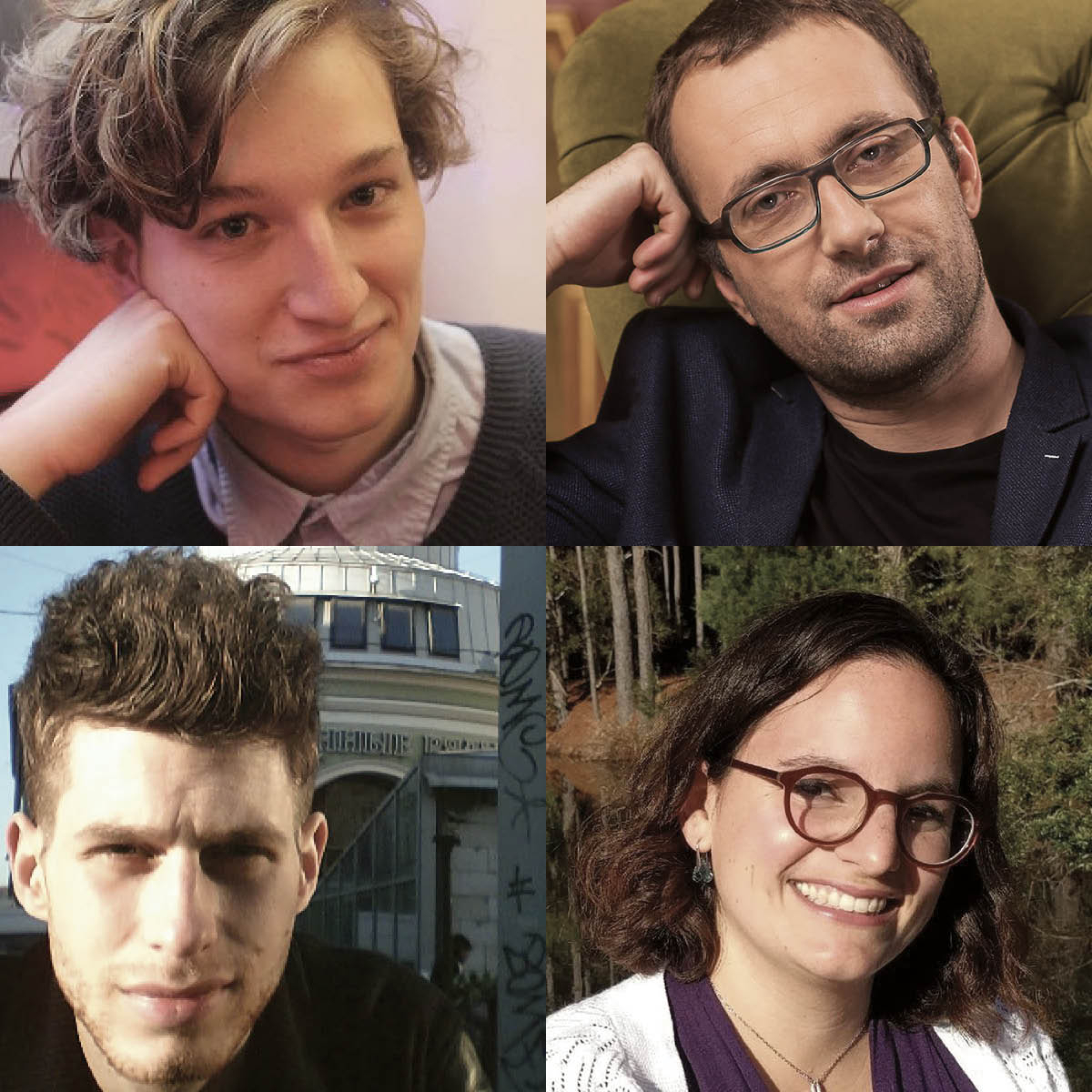New Trends in YIVO Scholarship

|
Panel Discussion
Admission: Free Registration is required. |
Since 1925, the YIVO Institute for Jewish Research has been a pioneer in the field of Jewish studies. At the core of YIVO since its founding was its commitment to scholarship which supported the Jewish “folk.” This manifested in a variety of initiatives, including youth autobiography contests and a youth research division (yugfor), an Economic-Statistical section (ekstat), and the establishment of various YIVO branches. These YIVO's activities continue to pique the interests of scholars, who have recently produced new scholarship analyzing these initiatives through the lens of new pioneering research methods.
Join YIVO for a panel discussion sharing new research on these historic YIVO initiatives featuring presentations by William Pimlott, Kamil Kijek, and Nicolas Vallois, followed by a conversation led by Jessica Kirzane.
This program is supported, in part, by public funds from the New York City Department of Cultural Affairs, in partnership with the City Council.

About the Speakers
Jessica Kirzane is the associate instructional professor of Yiddish at the University of Chicago. She is the Editor-in-Chief for In Geveb: A Journal of Yiddish Studies. Her academic work has appeared in L2 Journal, American Jewish History, Matrilineal Dissent: Women Writers and Jewish American Literary History (Wayne State UP, 2023); Judaism: Race, and Ethics: Conversations and Questions (Penn State UP, 2020) and elsewhere. Her literary translations from Yiddish have appeared in a variety of journals and she is the translator of three works by Miriam Karpilove Diary of a Lonely Girl, or the Battle Against Free Love (Syracuse UP, 2019), Judith (Farlag Press, 2020), and A Provincial Newspaper and Other Stories (Syracuse UP, 2023). Kirzane has been a Translation Fellow and a Pedagogy Fellow at the Yiddish Book Center and serves on the Academic Advisory Board of the Jewish Women's Archive. She earned her PhD in Yiddish Studies from Columbia University in 2017.
William Pimlott's current project investigates the global Yiddish press, focusing on the polycentric development of Jewish journalism, politics and aesthetics in the period 1890-1920. He recently completed a visiting lectureship at Royal Holloway, University of London (2023), on the project Global Jewish Studies as/or Holocaust Studies, and he finished his PhD, Yiddish in Britain: Immigration, Culture and Politics, 1896-1910, at UCL in 2022. Dr. Pimlott has written for the London Review of Books, Tribune and Jewish Currents and recently published an article in Shofar, with colleague Alex Grafen, on Leo Koenig and Yiddish Art History.
Kamil Kijek is an Assistant Professor at the Jewish Studies Department, University of Wrocław, Poland. He has been a Prins Foundation postdoctoral fellow at the Center for Jewish History in New York and Sosland Family Fellow at the Jack, Joseph and Morton Mandel Center for Advanced Holocaust Studies at the United States Holocaust Museum in Washington, DC. Kijek’s publications include: “Dzieci modernizmu. Świadomość i socjalizacja polityczna młodzieży żydowskiej w Polsce międzywojennej” [Children of modernism. Socialization and Political Consciousness of the Jewish Youth in Interwar Poland], Wrocław 2017; “Was It Possible to avoid ‘Hebrew Assimilation’? Hebraism, Polonization, and the Zionist “Tarbut” School System in the Last Decade of Interwar Poland”, “Jewish Social Studies”, vol. 21.2, 2016.; “Between love of Poland, symbolic violence and anti-Semitism. On the idiosyncratic effect of the state education system among the Jewish youth in Interwar Poland” [in:] “Polin. Studies in Polish Jewry”, vol. 30, 2018.
Nicolas Vallois's current research focuses on the history of “Jewish statistics” or “Jewish social sciences,” which refers to the important development of statistical studies of Jewish populations that began to emerge in Europe and the United States in the second half of the XIXth century. He is interested in the theoretical influences of this current of research and in the way in which it gradually developed into an autonomous intellectual field. His work is therefore related to the history of economics and statistics, but also to cultural history since he is more generally interested in economic representations and stereotypes associated with Jews in economic thought. His previous research was in the history of neuroeconomics and behavioral economics.




